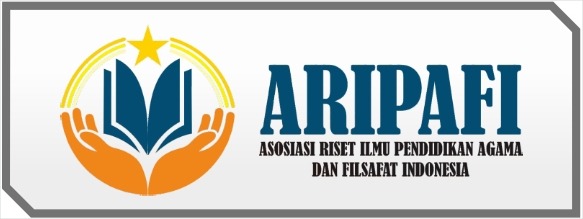Comparative Analysis Between Imam Khomeini and Nurcholish Madjid Thought on Islamic Unity
DOI:
https://doi.org/10.61194/ijis.v3i3.802Keywords:
Islamic unity, Imam Khomeini, Nurcholish Madjid, Divine law, ModerateAbstract
This study investigates the religious, intellectual, and social dimensions of Islamic unity by examining the contributions of two influential figures: Ayatollah Khomeini, a Twelver Shia leader of the Iranian Islamic Revolution, and Nurcholish Madjid, a Sunni reformist intellectual from Indonesia. Employing Charles Tilly’s 1984 theoretical framework, the research conducts an integrative analysis to identify convergences and divergences in their thought, emphasizing shared values and ideological distinctions. Findings reveal that both scholars advocate for moderation in interfaith and intra-faith engagement, affirming the Qur'an as a foundational text despite interpretive differences. They acknowledge sectarian divisions as historically contingent, often shaped by political forces, yet maintain that Sunni and Shia traditions stem from common Islamic principles. Their perspectives underscore the necessity of unity within the Muslim ummah, particularly in resisting external efforts to exacerbate internal divisions. In conclusion, Khomeini and Madjid exemplify distinct yet complementary approaches to fostering Islamic cohesion. Their shared emphasis on unity, despite theological and cultural differences, offers a valuable paradigm for contemporary discourse. This research affirms the significance of inclusive and integrative thought in promoting solidarity across the global Muslim community.
References
A B Dolatabadi, A. B., & Eltiaminia, R. (2021). Cultural Problems of the Muslim World and Their Solutions According to Imam Khomeini. Journal of Contemporary Research on Islamic Revolution, 3(8), 53–70.
Adiyia, M., & Ashton, W. (2017). Comparative research. Rural Development Institute Brandon University.
Akbari, A., & Zaeri, Q. (2023). Investigating the Dimensions of Imam Khomeini’s Thought for Managing the Islamic World in the Post-Unity Stage. Journal of Social Theorie of Muslim Thinkers, 13(4), 63–76.
Aravik, H., & Choiriyah. (2016). ISLAM AND RELIGIOUS PLURALISM. Mizan: Jurnal Ilmu Syariah, 4(2), 287–310.
Badaruddin, K., Zailia, S., Ramadhan, S., & Pramasto, A. (2025). Ahlul Bait Nabi Noble’s Characters as Inspiration in Educational Management. Sinergi International Journal of Islamic Studies, 2(2), 113–128. DOI: https://doi.org/10.61194/ijis.v3i2.742
Barton, G., Yilmaz, I., & Morieson, N. (2021). Authoritarianism, Democracy, Islamic Movements and Contestations of Islamic Religious Ideas in Indonesia. Religions, 12(10), 641. DOI: https://doi.org/10.3390/rel12080641
Bhagat, G. (1987). KHOMEINI: LEADER OF ISLAMIC REVOLUTION IN IRAN. The Indian Journal of Political Science, 48(31), 32–40.
Bisri, H. (2018). Khomeini’s Concept of Wilâyat Al-Faqîh and Its Influence. TAJDID, 25(1). DOI: https://doi.org/10.36667/tajdid.v25i1.351
Djainudin, H. (2022). The conception of religious moderation in interfaith dialogue in Indonesia; Case study in Flores Nusa Tenggara Timur. Humanika, 22(2), 140–143. DOI: https://doi.org/10.21831/hum.v22i2.54304
Firdaus, M. A., Rosyidin, M. A., Afabih, A., & Bachtiar, H. I. (2025). Merebut Kembali Jalan Tengah: Lintasan Historis Pendidikan Islam Moderat di Pesantern Indonesia Abad Keenambelas. Didaktika Religia, 13(1), 1–30.
Girivirya, S. (2022). The Dilemma of Religious Education Model in Indonesia Affected to Inter-Group Attitudes: From an Online Survey. Al-Ishlah: Jurnal Pendidikan, 14(2), 1699. DOI: https://doi.org/10.35445/alishlah.v14i2.2178
Gregg, J. S., Nyborg, S., Hansen, M., Schwanitz, V. J., Wierling, A., & Pedo, J. (2020). Collective Action and Social Innovation in the Energy Sector: A Mobilization Model Perspective. Energies, 13(3), 3. DOI: https://doi.org/10.3390/en13030651
Hapsari, T. (2018). The History of Contemporary Indonesian Muslim Groups and Muslim Media. Jurnal AFKARUNA, 14(1), 112–113. DOI: https://doi.org/10.18196/AIIJIS.2018.0082.101-127
Haruna, S. M. (2025). Sectarianism and Fragmentation in the Muslim World: A Qur’anic and Hadith Perspective on the Causes, Consequences, and Path of Unity. . . Dirasah International Journal of Islamic Studies, 3(1), 42–63. DOI: https://doi.org/10.59373/drs.v3i1.49
Hassan, R. (1984). Iran’s Islamic Revolutionaries: Before and after the Revolution. Third World Quarterly, 6(3), 678–680. DOI: https://doi.org/10.1080/01436598408419792
Huda, A. N., Kyai, K., Kyai, K., Kyai, KyaiKyai, K., & Kyai, K. (2007). Ahlussunnah wal Jama’ah (Aswaja) Menjawab Persoalan Tradisi dan Kekinian. Lembaga Dakwah NU (LDNU).
Islami, S. H. (2012). Politik Khomeini: Wajah Etika Islam. Citra.
Khalid, A. A. (2019). The Impact of Audit and Governance Committee. International Journal of Recent Technology and Engineering (IJRTE), 8(2), 428.
Khedri, A., & Malaekeh, S. H. (2017). Comparative Study of the Concept of Justice in Imam. International Journal of Political Science, 7(4), 85–107.
Kholil, A. (2014). Pesona Cinta di Persia. Penerbit Gunung Samudera.
Madjid, N. (2000). Islam Agama Peradaban: Membangun Makna dan Relevansi Doktrin Islam dalam Sejarah. Paramadina.
Moin, B. (1999). Khomeini: Life of the Ayatollah. St. Martin’s Press.
Mushlihin. (2019). From Politics to Education : Nurcholish Madjid and The Reform of Islamic Education In Indonesia. Hayula: Indonesian Journal of Multidisciplinary Islamic Studies, 3(1). DOI: https://doi.org/10.21009/003.1.02
Pramasto, A. (2019). REKOMENDASI GAGASAN NEO-SUTARTO UNTUK UNIVERSITAS SRIWIJAYA (Respons Terhadap Kasus Oknum Mahasiswa Simpatisan ISIS Tahun 2015). At-Ta’dib: Jurnal Ilmiah Prodi Pendidikan Agama Islam.
Pramasto, A. (2020). ISLAMIZATION, SHIA, AND IRAN: The Historical Background of Shia-Iran Sensitive Issues. Islamuna: Jurnal Studi Islam. https://doi.org/10.19105/islamuna.v7i1.2629 DOI: https://doi.org/10.19105/islamuna.v7i1.2629
Rafsanjani, H. (2008). Aspek-aspek Pokok Islam: Pandangan Islam Tentang HAM, Hegemoni Barat & Solusi Dunia Modern. Nuansa.
Rahman, A. (2025). Compatibility of Islam and Democracy Towards a Civilised Indonesia. Formosa Journal of Sustainable Research, 4(5), 845–854. DOI: https://doi.org/10.55927/fjsr.v4i5.197
Saihu, M. (2021). Pedidikan Moderasi Beragama: Kajian Islam Wasathiyah Menurut Nurcholish Madjid. ANDRAGOGI : Jurnal Pendidikan Islam Dan Manajemen Pendidikan Islam, 3(1), 16–34. DOI: https://doi.org/10.36671/andragogi.v4i01.151
Siradj, S. A. (1997). Ahlus Sunnah wal Jama’ah dalam Lintas Sejarah.
Sumanta, S. (2022). Nurcholish Madjid Inclusive Thinking in Religion and State Relations in Indonesia. Jurnal Yaqzhan, 8(1), 163. DOI: https://doi.org/10.24235/jy.v8i1.11020
Tim ABI. (2012). Buku Putih Mazhab Syiah Menurut Ulama Syiah yang Muktabar : Sebuah Uraian untuk Kesepahaman demi Kerukunan Umat Islam. DPP Ahlul Bait Indonesia (ABI).
Todorova, B. (2017). The Position of “Unity” Between Theocracy and Theodemocracy in the Political Thought of Imam Khomeini. Romanian Review of Political Science & International Relation, 14(1).
Wahab, A. J. (2015). Harmoni di Negeri Seribu Agama (Membumikan Teologi dan Fikih Kerukunan). Elex Media Komputindo.






